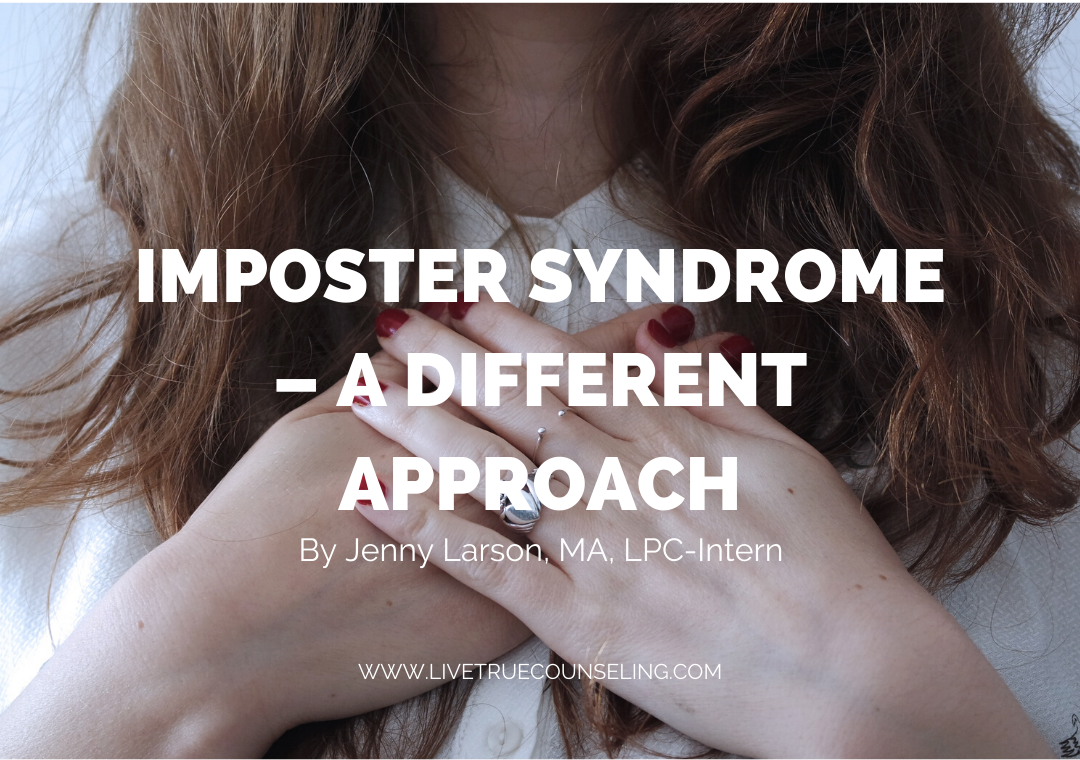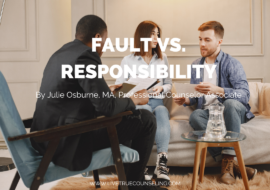
Imposter Syndrome – A Different Approach
I hadn’t thought much about imposter syndrome until I was in grad school studying psychology and getting ready to start seeing clients in my internship. Grad school can only do so much to prepare a new therapist to sit with a client for the first time. As I walked into the room with my first client, I thought, “This poor person. They got me as a therapist. I don’t know what I’m doing! What if I cause some sort of irreparable damage!?! I shouldn’t be here.” While I made it through that session and many others after it, the feeling of being an imposter doesn’t go away easily. In fact, it may never go away completely.
Jenny Larson loves her work as a therapist at Live True Counseling and as a Volunteer Counselor at William Temple House. When not seeing clients, she can be found reading psychology books and celebrity memoirs, watching bad (good) 80s movies, and sewing or baking. While self-identified as a cat person, she also has a fondness for dogs and other animals.









